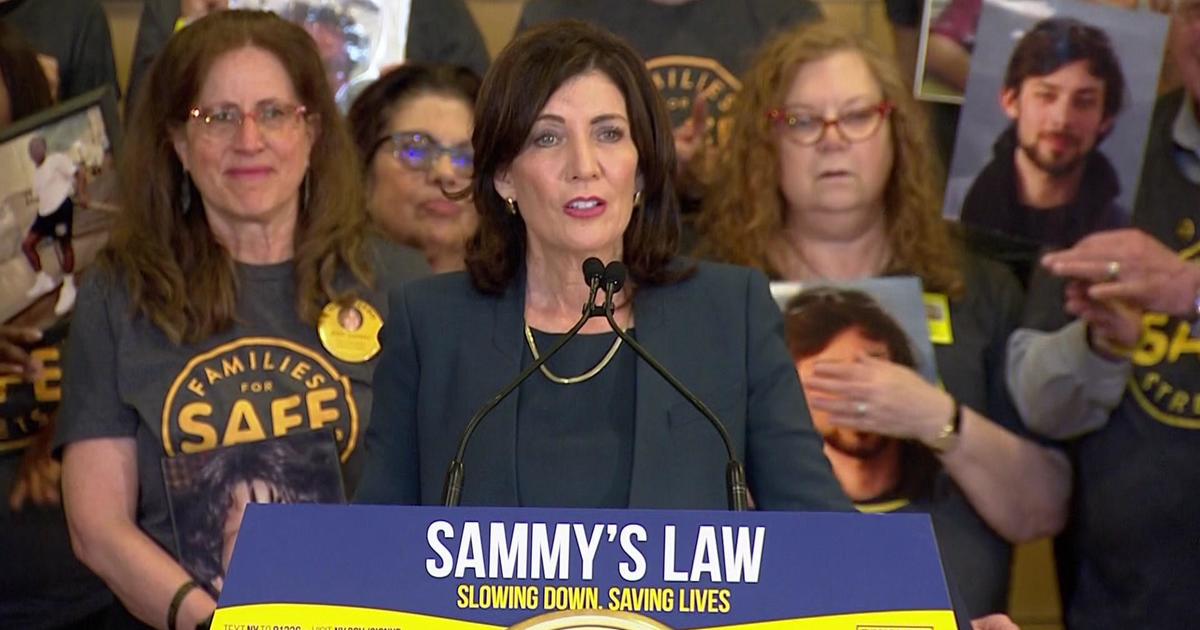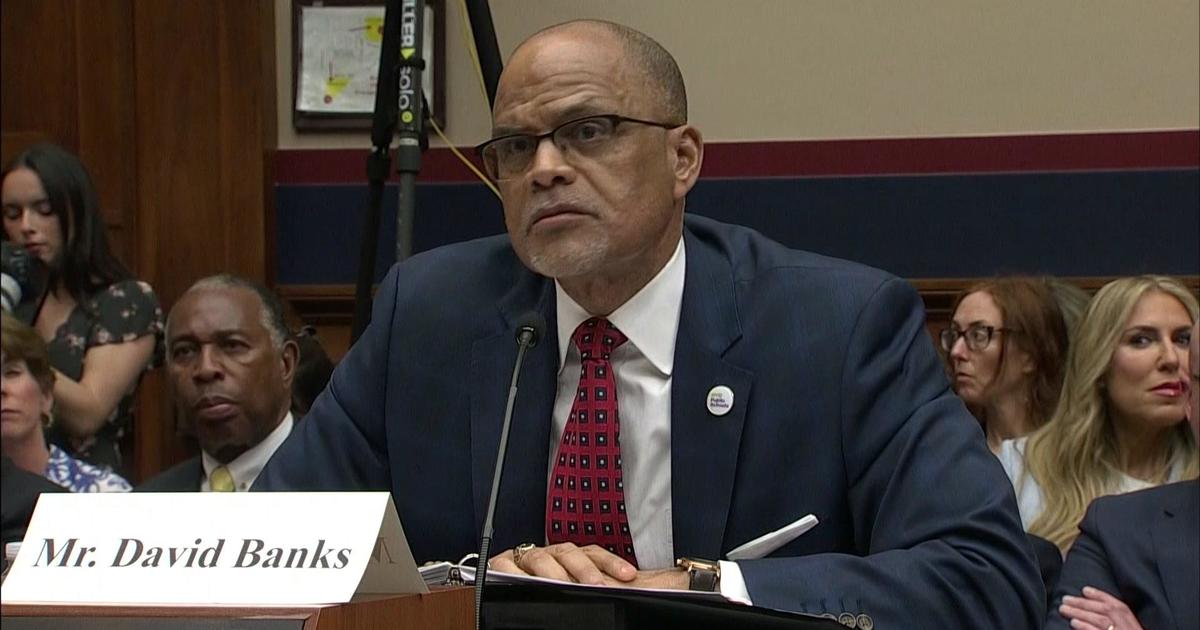Hundreds sign up to speak at MTA's first public hearing on congestion pricing
NEW YORK -- The MTA heard from commuters and taxpayers about the controversial congestion pricing plan Thursday as the first of six public hearings was held.
As CBS2's Dick Brennan reports, they had an awful lot to say on both sides, even though it's not clear what the details are, depending on the plan approved.
Congestion pricing could cost drivers anywhere from $9-23 a trip, and there's a lot more to hash out.
The battle over congestion pricing has carried on for years, but the war of words is now heating up and the battle lines have been drawn.
"If you guys tell me that it's gonna be $23 every day that I need to take my car out of my driveway ... is outrageous, and I can't believe that this is even being discussed," East Side resident Collette Vogel said.
"I'm a property owner in this city. I was born and raised in this city, but again, the MTA continues to mismanage our public dollars. You are not working for the people. You're working against the people," Wallace John said.
"Reducing the number of cars on our streets will not only save countless lives, but it will also help fund the lifeline of our city, which is the MTA and our transit system," Forest Hills resident Pedro Rodriguez said.
"The people who remain in private vehicles should pay their fair share," Phillipe Castillo said. "When private vehicles come into these streets, they occupy space that other people cannot occupy, other pedestrians cannot occupy."
The idea of congestion pricing is to reduce traffic in the places where its worst - from 60th Street down to the battery, exempting the West Side Highway and FDR Drive.
"Love it, hate it - congestion pricing is important. It's critical to our transit. It's critical to reduce congestion, and it's critical to improving our air quality, and we need it now," said Lisa Daglian, executive director of the Permanent Citizens Advisory Committee to the MTA.
Advocates say it's crucial for the future funding of mass transit.
"Very important to keep the system in a state of good repair. New tracks. New signals. New rolling stock. New stations. New accessible stations," said Andrew Albert, chair of of the NYC Riders Council and a non-voting MTA board member.
But some residents who live right near the dividing line of 60th Street fear they will be overrun by people looking for spots.
"How can we park here without having other people from other places come and park?" one resident asked Thursday night.
And what about crime on subways? Speakers squared off on what's the most dangerous way to travel.
"Commuters are afraid to ride mass transit, so why does anyone think they will give up their cars and put their health and safety in jeopardy," one person said.
"Enough with the rhetoric about unsafe subways for the elderly. Are highways any safer?" Morningside Heights resident Evan Ferrer said.
The next question: Who will pay what? An MTA panel will decide on toll rates, and who will get a discount and be exempt.
"Police, fire, sanitation - I'm sure they are going to be exempted from it. Vehicles that carry folks that are not ambulatory, they'll be exempted from it. Hospital vehicles, fire vehicles. All of these things are going to be on the table," Albert said.
Watch John Dias' report
"It's like a no-win situation," one driver told CBS2's John Dias.
"I still see there's probably a need for it," another driver added.
Some think it should be even pricier, to help the MTA and the environment.
"Very high. We need the tax money," said one woman. "Non-commercial vehicles in New York City are destroying the environment."
Others say the fees are already too high and could have Uptown looking and sounding more like Midtown. Likely many people will try to avoid the toll, and traffic patterns will change.
"That would be terrible to have trucks and everything else move from Midtown to Uptown," Upper West Side resident Yarr Cohen told Dias.
"It's such a lovely neighborhood, with family and kids and parks, and it would be lovely to keep it the same way and not have gases and cars buzzing around," resident Aleksandra Nesterchuck said.
When it comes to the issue of parking, some garages already charge $900 a month, and it's even more costly for larger vehicles or parking on the ground level. Many drivers fear the costs will skyrocket with more people looking to park in garage Uptown, if they can even get in.
"This parking lot actually has always been full, and we got in during COVID. So it's actually difficult getting into this parking lot," said one driver.
After these hearings, in January, the federal government decides whether to proceed, because some of the streets affected are federally funded. The earliest the hardware could then be in place to start is November 2023, but it has been delayed before. With that track record, it could be delayed again.
There are five more public hearing about congestion pricing.
CLICK HERE for more information.




